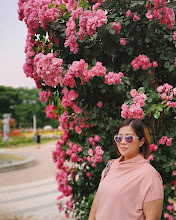 |
| Royal Guard at Gyeongbukgong wearing a face mask amidst the snow and virus scare. Photo credit: Ahn Young Joon |
Coronaviruses, as defined by the World Health Organization, "are a large family of viruses that cause illness ranging from the common cold to more severe diseases such as Middle East Respiratory Syndrome (MERS-CoV) and Severe Acute Respiratory Syndrome (SARS-CoV)".
Coronaviruses are zoonotic, which means they can be transmitted between animals and people. Previous studies showed that SARS-CoV (identified in 2003) was transmitted from civet cats to humans and MERS-CoV (first identified in 2012) from dromedary camels to humans.
What is COVID-19?
COVID-19 is the official name for the new corona virus that has not previously been seen in humans. This new disease was first identified in Wuhan City, Hubei Province, China. The first infections were linked to a live animal market, but the virus is now spreading from person-to-person through close contact or via respiratory droplets produced when an infected person coughs or sneezes.
What are the symptoms of the new coronavirus?
Fever, cough, and shortness of breath are some of the symptoms of this disease.
Initial findings revealed that symptoms of COVID-19 may appear in as few as 2 days or as long as 14 days after exposure. However, further studies have confirmed that a person can carry and transmit the disease without even showing any symptoms (asymptomatic).
How can we avoid this disease?
They say prevention is better than cure - especially when there's no actual cure for this disease. At present, there is no vaccine that can prevent COVID-19, and it would be best to avoid being exposed to it.
The World Health Organization and the Center for Disease Control and Prevention (CDC) have issued the following guidelines to prevent the spread of this disease:
- Avoid close contact with people who are sick.
- Avoid touching your eyes, nose, and mouth.
- Stay home when you are sick.
- Cover your cough or sneeze with a tissue, then throw the tissue in the trash.
- Clean and disinfect frequently touched objects and surfaces using a regular household cleaning spray or wipe.
- Wash your hands often with soap and water for at least 20 seconds, especially after going to the bathroom; before eating; and after blowing your nose, coughing, or sneezing.
- Follow CDC's recommendation for using face masks - only wear them if you have any of the symptoms mentioned above. People who are well and healthy do not need to wear masks.
 |
| Ambulances in Daegu, South Korea. Photo credit: Kim Hyun Tae. |
Because of the COVID-19 outbreak, South Korea is now on the highest alert level which means authorities can order the temporary closure of schools and reduce the operation of public transportation and flights to and from the country. Nearly 500 schools have delayed the start of classes, while visa-free entry to Jeju Island has been temporarily suspended to all foreign nationals.
The following entry restrictions have also been issued by the Korean Ministry of Justice:
- Travelers with passports issued in Hubei, China
- Korean visas to travelers who were issued in Hubei Province, China will be cancelled
- All foreign nationals who visited Hubei Province, China in the past 14 days will be restricted entry
- Visa-free entry to Chinese nationals and foreign nationals who are traveling from China will be suspended.
 |
| Royal Guards at Deoksugung Palace. Photo credit: Jeon Heon Kyun. |
Museums and parks in Seoul are also temporarily closed, and the four royal palaces (Gyeongbokgung, Changgyeonggung, Changdeokgung, Deoksugung), the royal tombs, and Jongmyo Shrine have stopped their guided tour services indefinitely. Several festivals such as the Nonsan Strawberry Festival, Snow Crab Festival, and Busan International Buddhism Expo have been cancelled, while the Comic World festivals in Seoul and Busan have been postponed.
Edit, 26 Feb 2020: The Philippines has imposed a travel ban on Filipino tourists going to South Korea. However, OFWs, Filipinos leaving for study, and permanent residents of South Korea are exempted from the travel ban. In addition, travelers coming from North Gyeongsang Province, where Daegu is located, shall not be permitted entry to the Philippines.
Meanwhile, the Korean government is working hard to contain further infection and is constantly providing reports and updates of suspected and infected cases of COVID-19. Press releases are published twice daily at 9am and 4pm at the Korea CDC website.


















0 replies:
Post a Comment